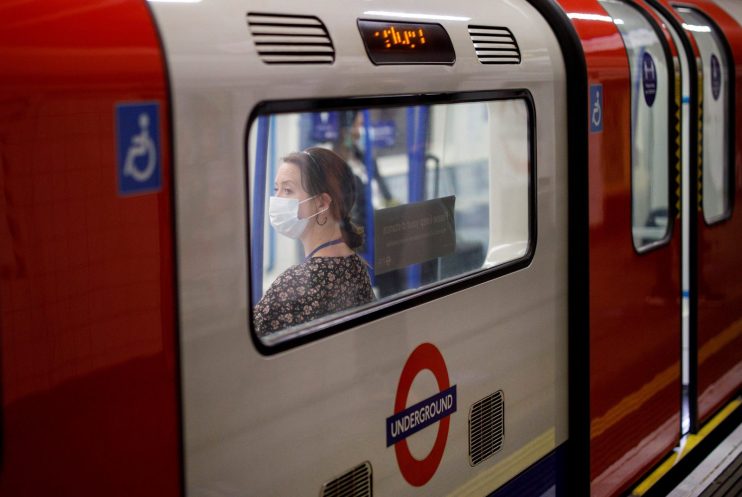London Underground journeys exceed pre-pandemic levels ahead of Christmas rush

The number of passengers travelling on the London Underground exceeded 4m last week, the highest recorded single-day figure since the start of the pandemic.
Figures from Transport for London (TfL) revealed the milestone on Thursday 23 November, which marks a major milestone in the recovery of ridership to pre-pandemic levels.
Thursday’s bumper tally was up 7.6 per cent on the equivalent day last year, when passenger numbers reached around 3.76m. The week as a whole showed 24.78m Tube journeys were completed.
TfL said midweek ridership on the Tube is now regularly reaching above 3.7m journeys, up 6.5 per cent compared with the previous year ahead of the busy Christmas period.
The Mayor of London, Sadiq Khan said: “It’s fantastic to see London truly roaring back post-pandemic – this impressive boost in ridership will support London’s and indeed the whole UK’s wider economy recovery. There’s no doubt that as Christmas approaches the appeal of London’s world-leading shops, restaurants and other venues is as strong as ever.”
Ridership on the night tube and night overground services is currently at around 60,000 on Friday night’s between 12:30am and 4:30am, and close to 70,000 journeys on Saturday’s.
The figures come amid calls for the government to agree a new funding agreement for TfL, which has consistently struggled financially since the pandemic brought the network to its knees.
Muniya Barua, Deputy Chief Executive of the lobby group BusinessLDN, said: “These rising Tube numbers demonstrate the urgent need for the Government to agree a long-term capital funding settlement for TfL.”
“Investing in London’s public transport network is essential to meet rising demand and keep the city moving. Providing certainty on funding would not only benefit the capital’s economy but also support jobs and growth across the country through TfL’s supply chain.”
Andy Lord, London’s Transport Commissioner, said: “We need the Government to urgently confirm that they will provide the capital investment support we need for 2024/25. TfL’s investment in the supply chain supports more than 100,000 jobs across the UK, almost half of which are in small medium enterprises, who are also reliant on TfL’s funding certainty.”
After Jeremy Hunt failed to mention a new deal in the Autumn Statement, TfL and a host of City groups warned that the network was facing a funding “cliff edge” ahead of a March 2024 deadline for the current arrangement.
A DfT spokesperson said: “It is for the Mayor to ensure TfL can deliver transport services in the capital. To support this, we have provided more than £6bn since 2020, on top of TfL also receiving just under £1.2bn in capital grant funding until the end of March 2024 as well as revenue protection.”